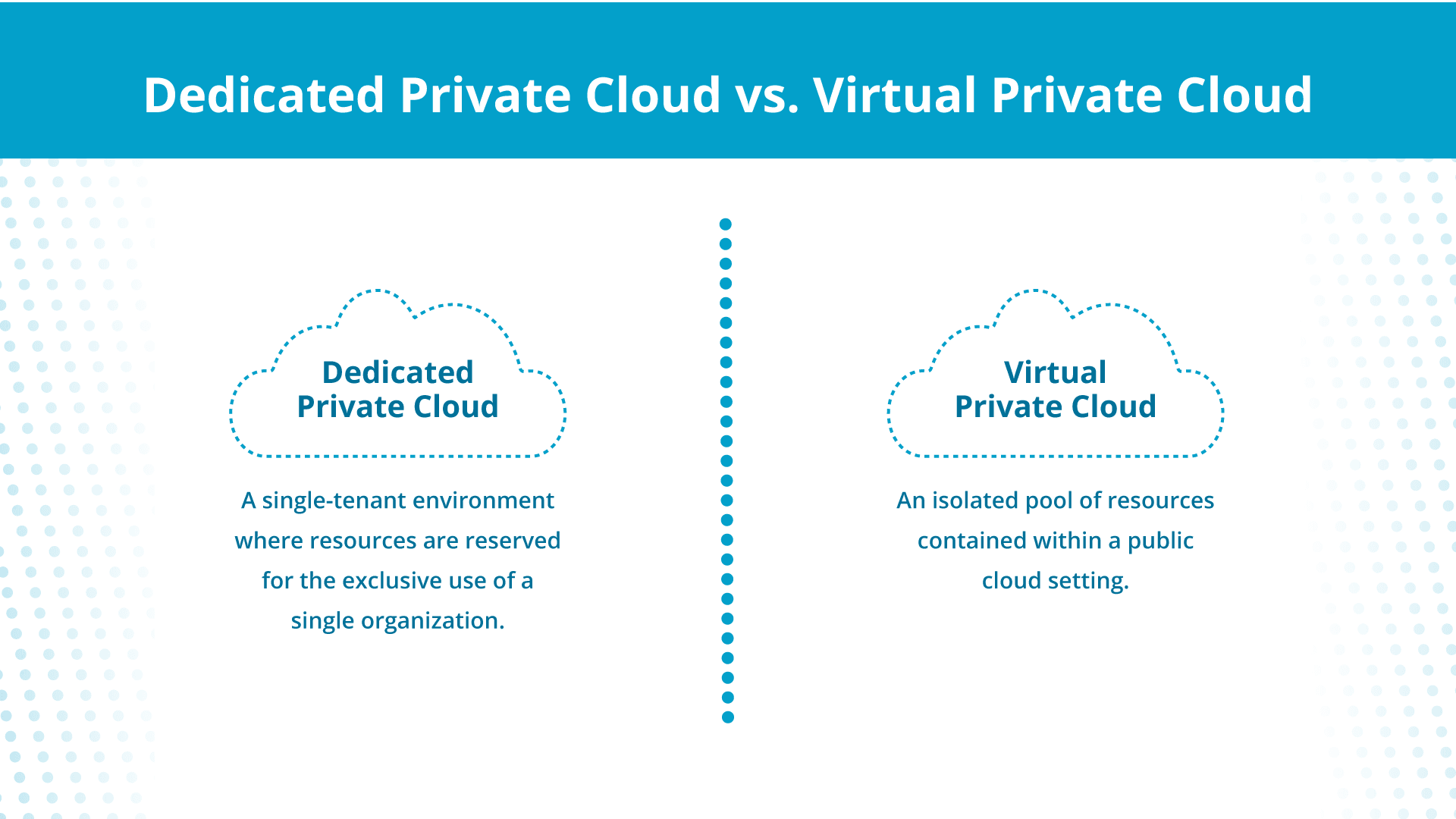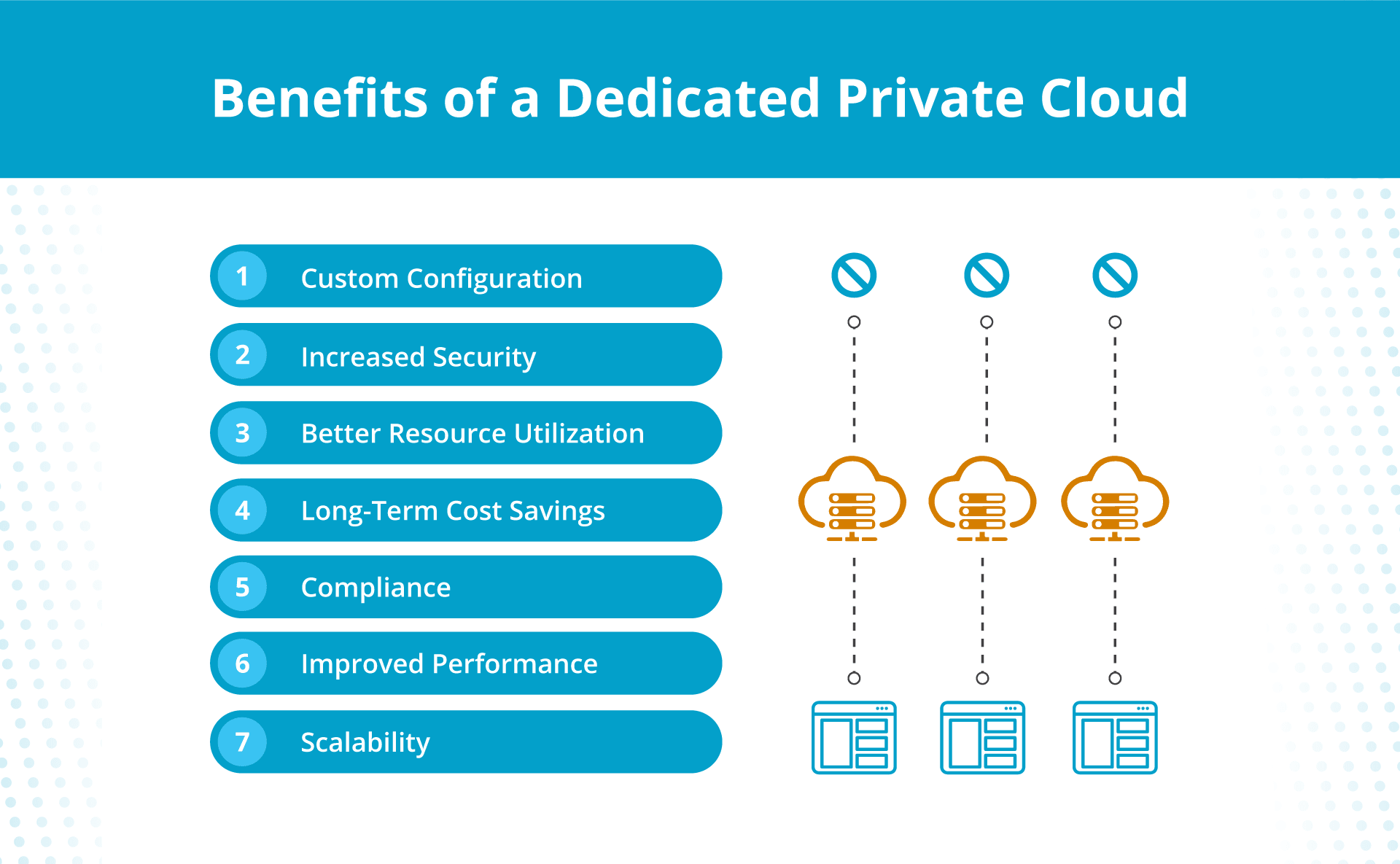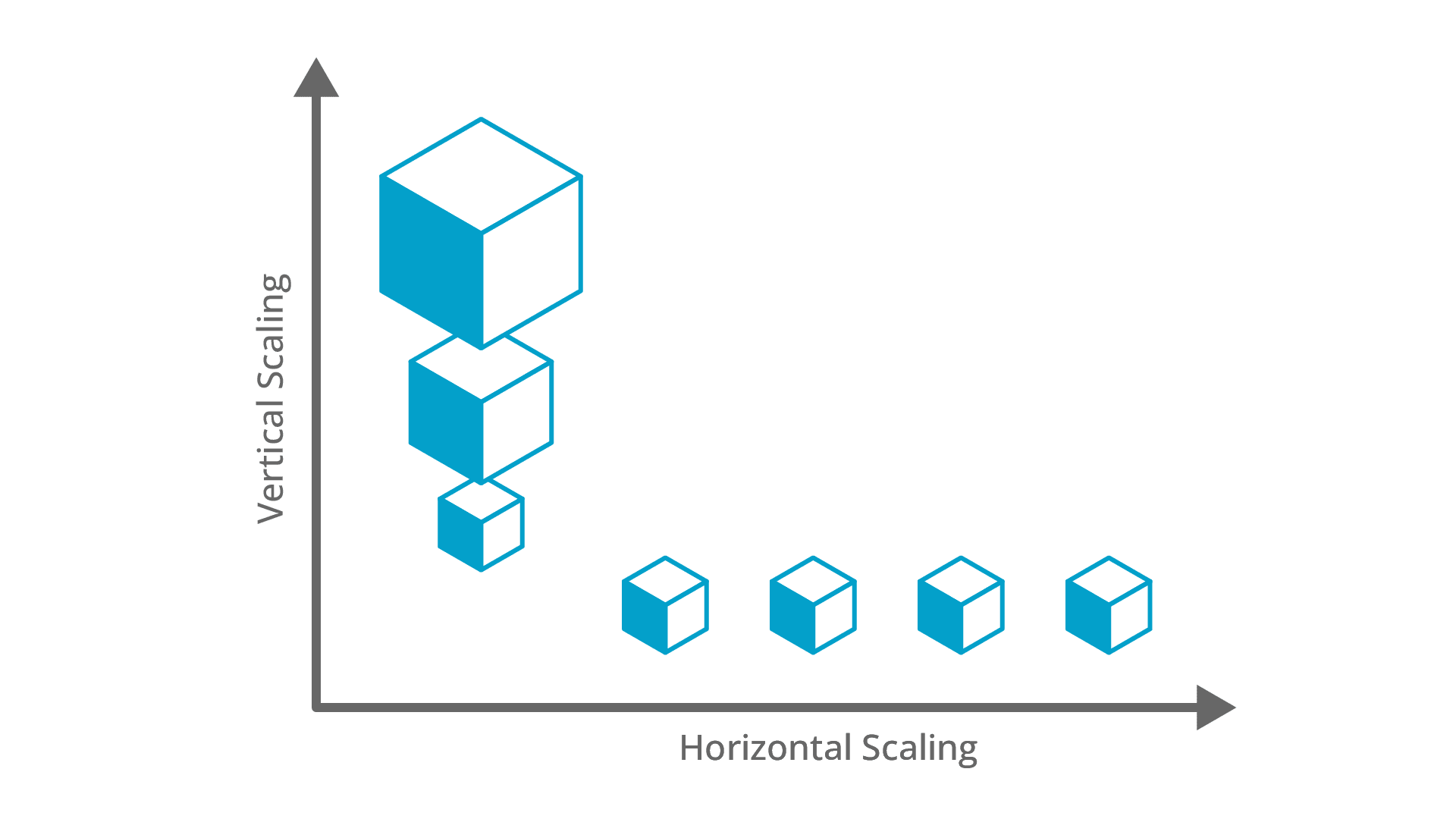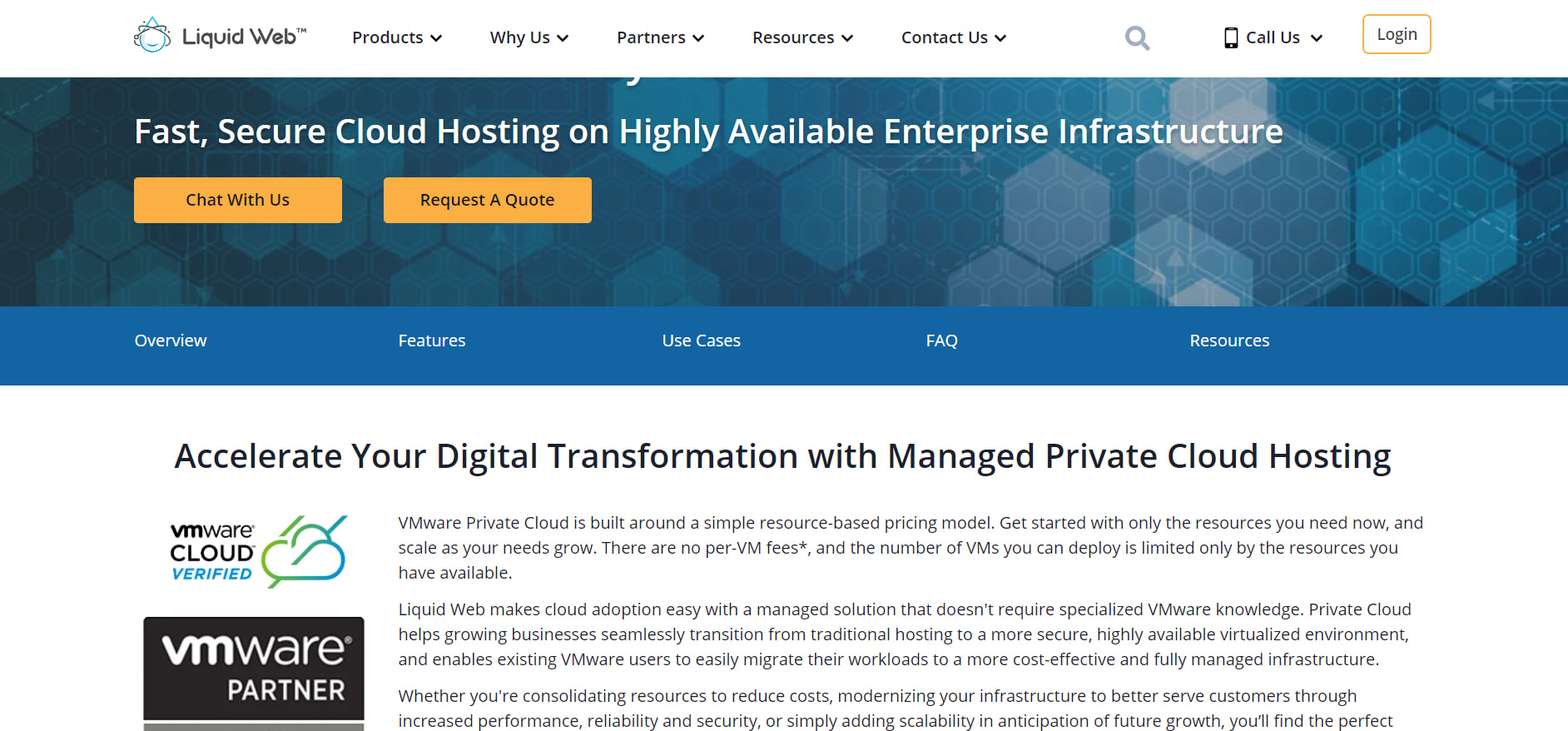Exploring the possibilities of a dedicated private cloud
Dedicated private cloud is a type of cloud environment where enterprises have more control over their data, resources, and applications. It’s one of the latest buzzwords in business hosting.
But how do you know if it’s the right hosting solution for you? And what makes it different from other cloud computing environments?
In this guide, we’ll answer these questions and look at features to consider when adopting dedicated private cloud architecture.
What is a dedicated private cloud?
A dedicated private cloud is a single-tenant environment where computing resources are reserved for the exclusive use of a single organization. In other words, a private cloud environment is devoted solely to your use, giving you more control, high security, and more customization options.
The hardware is often hosted on-premises, where the organization’s IT team is responsible for managing the hardware and upkeep. It can also exist off-premises in vendor-owned data centers where the cloud service provider hosts the infrastructure under a subscription or lease plan.
A dedicated private cloud is suitable for large organizations seeking more control over their cloud setup.
Dedicated private cloud vs virtual private cloud
While a dedicated private cloud is a dedicated server in the cloud, a virtual private cloud (VPC) is an isolated pool of resources contained within a public cloud setting. It is a type of virtual machine where you get a subsection of the public cloud, meaning you won’t share resources with other users. It’s accessible via a secure connection like a VPN and can be scaled on demand.
A VPC isn’t ideal for businesses subject to strict regulatory standards since workloads are hosted outside their own physical data center. And should something happen to your Internet connection, your VPC might become unreachable.

With a dedicated private cloud, resources like CPU and RAM are dedicated to a single organization. It’s built according to the specific needs of an enterprise and lacks the issues inherent in a shared server setup.
Overall, a dedicated private cloud offers the highest levels of security, availability, and uptime compared to a VPC. It also includes stricter compliance capabilities.
How a dedicated private cloud helps your business
A dedicated private cloud brings with it a host of benefits to help your business and ensure it works for you instead of your company working around limitations.
Custom configuration
One advantage of a dedicated private cloud setup is the ability to customize your infrastructure according to your unique requirements. This includes configuring server settings and installing specialized software.
You get complete control over the environment, unlike a public cloud setup, where the initial configuration options the host provides limit your control.
Increased security
As cybercrimes and data breaches continue to plague companies, the importance of security is monumental. With a dedicated private cloud, you get a higher level of security than a shared or multi-tenant environment. That’s because you can implement more robust security measures, such as intrusion detection systems, hardware firewalls, access control mechanisms, and encryption. In short, you can adopt your own security processes rather than being at the mercy of shared security across multiple organizations.
Better resource utilization
One key feature of virtualization is that it allows you to leverage underused servers. You can move workloads to these servers to maximize resource usage. This also means that you won’t have to purchase additional resources when needed. So on top of optimizing usage, you can reduce costs.
Overall, a dedicated private cloud can allocate resources more efficiently, making it easier to manage workloads and cut costs.

Long-term cost savings
There’s no denying that a dedicated private cloud can come with significant upfront costs. That being said, the initial investment pays off big in the long run, as costs tend to be more predictable and transparent. And you don’t have to worry about outages from another tenant hogging resources or their lax security causing an expensive data breach for you.
The single-tenancy nature of a private cloud also means it’s easier to predict monthly costs. This is especially true for businesses with steady workloads.
The public cloud can come with hidden extra charges, such as bandwidth usage, leading to monthly costs that may be higher than expected.
Compliance
A dedicated private cloud has higher standards for compliance. It allows you to comply with strict industry-specific regulations or data privacy laws like HIPAA, PCI-DSS, and GDPR. It’s especially beneficial for finance, banking, or health companies as they handle highly sensitive data.
There are also stiff legal or financial penalties for non-compliance, making the cost of non-compliance far greater than the costs associated with staying compliant. For instance, you can be fined up to 20 million euros (approximately $21.9 million USD) if found in violation of GDPR. Plus, having to notify customers of a breach could cause lasting damage to your reputation.
Improved performance
Since only your company has access to computing resources, you’ll get high performance, ensuring a better user experience. In a shared server environment, tenants compete for resources, meaning a user might suffer performance drops if another tenant uses too much.
Scalability
A dedicated private cloud offers easy scaling in response to growing demand. Specifically, you can achieve this through vertical scaling or horizontal scaling.
Virtual scaling refers to adding more resources to existing infrastructure, resulting in increased capacity. It’s especially beneficial for resource-intensive applications.Horizontal scaling means adding more virtual machines to your system to distribute the load across them. This approach is useful for applications with high concurrency.

How to shop for a dedicated private cloud
Before adopting a dedicated private cloud hosting model, there are certain factors to take into consideration:
Business requirements
When preparing for the shift, start by evaluating your business requirements. Look at workload demands, security needs, compliance requirements, and your budget. Doing so will help you know what technical details you need from a private cloud environment.
Cost
If you opt to deploy or host a dedicated private cloud on-premises, you’ll need to be aware of the associated costs. Things like servers, network equipment, physical data centers, storage services, and software licenses require significant capital expenditure.
You should take into account the ongoing maintenance costs to keep things functioning as they should or to ensure optimal performance.
Application integration
Moving to a dedicated private cloud setup also entails integrating existing applications with this environment. Certain applications might need re-architecting to gain the benefits of the cloud. However, modernizing these applications can be challenging and take time.
Liquid Web helps solve that problem with VMware Private Cloud, which lets you use older applications easily. This way, you can kickstart your private cloud journey without worrying about compatibility issues.
Managed vs unmanaged dedicated private cloud support needs

Many IT teams aren’t equipped to deploy and manage a dedicated private cloud environment - having to reconfigure the data center infrastructure to accommodate private cloud technologies, for example.
When you host the servers yourself or choose an unmanaged host, you’re on the hook for all the technical needs. But an unmanaged dedicated private cloud isn’t your only option. You can opt for managed services if you lack in-house expertise or have a small IT team. In this scenario, you offload the burden of managing your dedicated private cloud to a service provider.
Take the dedicated VMware private cloud at Liquid Web, for example. They handle the entire infrastructure, including hardware, giving you time to focus on higher-priority activities. Plus, they provide proactive monitoring around the clock to ensure everything runs smoothly. If that isn’t enough, they provide industry-leading technical support.
And choosing a managed dedicated private cloud solution reduces the total cost of ownership (TCO), making it even more cost-effective.
Security
As we know, security threats are ever-changing, and malicious threat actors are getting smarter. Insider attacks also pose a risk to security.
So, despite the control you get with a dedicated private cloud environment, adopting a proactive security stance is crucial. After all, the costs associated with a breach can be staggering. According to a 2023 IBM report, a breach in the U.S. results in costs of $9.48 million USD, up from $9.44 million in 2022.
Physical security measures are also crucial for your servers. For instance, Liquid Web data centers include motion-detecting security cameras and locked cases.
Monitoring
Once you’ve set up a dedicated private cloud, you'll need to monitor it to ensure it is operating properly. This is easiest if you have your servers on-site or with a managed host that handles monitoring and maintenance for you.
Besides checking performance, monitoring allows you to:
- identify and mitigate potential security threats.
- track resource consumption to avoid unnecessary costs.
- understand resource demands to plan for future growth effectively.
Capacity planning
When setting up a dedicated private cloud environment, you’ll also need to invest in capacity planning. That’s because a dedicated private cloud doesn’t include limitless resources. The available physical hardware constrains it.
It is horizontally scalable, but you may need additional hardware for vertical scaling once you max out the resources on your current server. So you need to plan ahead and be ready to scale up at the right time.
And that’s where capacity planning comes into play. Capacity planning tools like resource quotas can help you track resource usage so you can avoid being surprised by how much capacity you need.
Final thoughts: What is a dedicated private cloud, and why do you need one?
Adopting a dedicated private cloud hosting environment can be a worthwhile endeavor. It enables you to enjoy the benefits of the cloud while still allowing you to maintain control of sensitive data and performance.
And when paired with the right managed hosting solution, there’s almost no limit to what you can achieve.
At Liquid Web, we provide managed private cloud hosting tailored to your needs. Our hosting solution includes industry-leading uptime, the highest levels of security, and predictable pricing. Plus, it's a scalable cloud service.
Related Resources

Chika Ibeneme
Chika Ibeneme is a Community Support Agent at The Events Calendar. He received his BA in Computer Science in 2017 from Northern Caribbean University and has over 5 years of technical experience assisting customers and clients. You can find him working on various WordPress and Shopify projects.
Keep up to date with the latest Hosting news.



